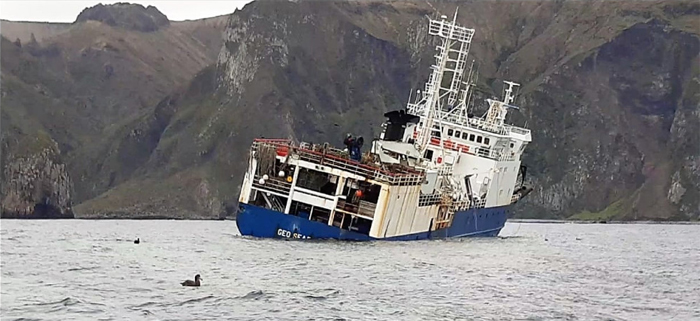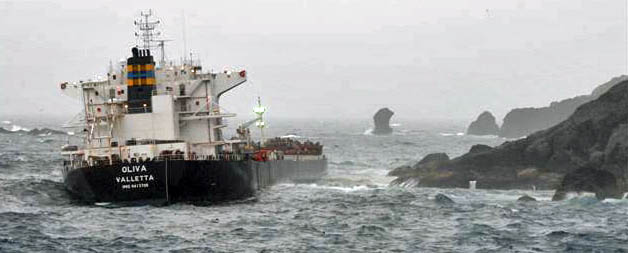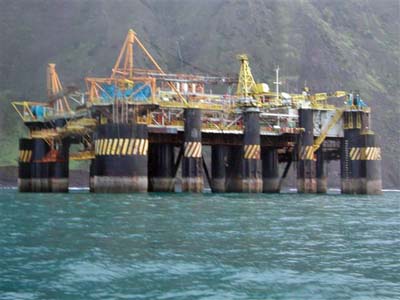21st Century Wrecks
The islands of the Tristan da Cunha group have always been sites for shipwrecks, especially during the age of sail, when ships were less able to manoeuvre out of the way of trouble. Wrecks were often a boon to the early settlers, because they provided much needed timber for house building and even the occasional castaway who decided to stay on Tristan permanently. Conversely, it was a wreck - the American schooner Henry B. Paul - that brought rats to the island in 1882, with severe consequences for wildlife and food production.
Shipwrecks are rarer nowadays, thanks to better technology, but bulk cargoes and spilt fuel oil mean the risks to wildlife and fishing are greater. This page summarises the three main shipwrecks that have occurred around the islands so far during the 21st century, and provides links to the full stories.
MFV Geo Searcher, 15th October 2020

The MFV Geo Searcher replaced the MFV Edinburgh as Tristan's main fishing vessel in 2017. Unfortunately, she hit a rock while fishing off Gough Island on the 15th October 2020 and sank. No lives were lost. After a dramatic escape, the crew managed to make their way to the South African meteorological station on Gough, where they were cared for until the SA Agulhas II, sailing from Cape Town, picked them up on the 21st October. The Agulhas II called at Tristan on the way back to Cape Town to drop off two Tristanian Fisheries observers and to pick up clothing collected for the shipwrecked crew by the island community.
MS Oliva, 16th March 2011

The bulk carrier MS Oliva, carrying a cargo of soya beans from Santos, Brazil to Singapore, ran aground on Spinners Point, Nightingale Island on 16th March 2011. All the crew were evacuated safely to Tristan in two batches by the MFV Edinburgh, assisted by zodiacs from the cruise ship MV Prince Albert II. A large fuel oil spill had a major impact on local wildlife, notably penguins fouled by the oil. The islanders undertook a major operation to clean up the soiled penguins, for which they were awarded the RSPB Medal. Fishing around Nightingale was halted for a while as a precaution, but thankfully there were no long term effects on the fishery.
Oil Platform PXXI, 7th June 2006

The semi-submersible Oil Platform PXXI was being towed from Macae, Brazil via Cape Town to Singapore when it hit bad weather on the 30th April 2006, and its tug, the Mighty Deliverer, was forced to to release it. The tug maintained contact with the platform for several weeks, but it was eventually lost from view. Tristan islanders by chance found the platform washed ashore at Trypot on Tristan on 7th June 2006. Salvage attempts by the ST Zouros Hellas failed, and the platform was towed offshore to be scuttled on 11th February 2007. Fortunately, the platform was unmanned and had been decontaminated for its journey, so there was no pollution or risk to life. However, a group of Brazilian Porgy fish had travelled with rig, and once it was scuttled, they established themselves in Tristan waters. Although they are a non-native species, they do not yet appear to have a detremental effect on local marine life.
